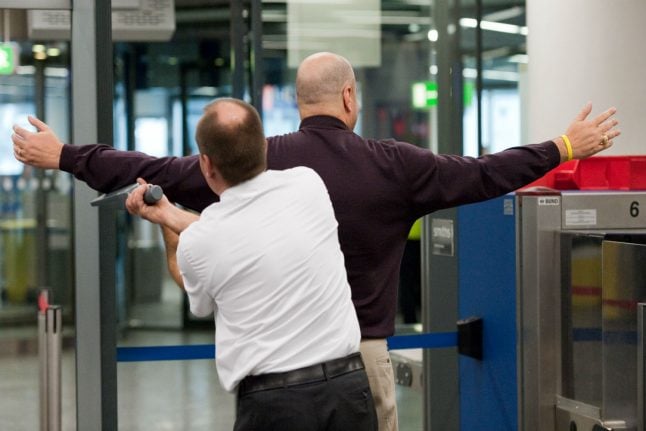€20 basic hourly wage for everyone – the trade union Verdi has found an effective formula for its collective bargaining meeting on Wednesday, which could cause problems in German air traffic in the coming weeks.
It involves around 23,000 employees who check and support passengers, personnel and freight at the entrances to the security area. The approximately 19,000 air security assistants in particular are feared for their striking power and have already won hefty salary increases in recent years. They are just as indispensable for smooth flight operations as pilots, flight attendants or controllers.
The negotiations, which will enter their third round this Wednesday, are complicated. The newly founded Federal Association of Aviation Security companies (BLDS) will sit in negotiations with two trade unions: Verdi and Deutscher Beamtenbund/Komba, which have quite different ideas.
In addition, all three partners want to find nationwide regulations, while there are currently still 14 regional collective bargaining agreements with very different wage levels. In all cases passengers themselves would foot the bill for higher tickets because the costs for the controls would be added on in the form of extra fees for tickets.
“People simply have to be well paid for their demanding and important job. And they also need perspectives,” says DBB negotiator Volker Geyer, whose union demands additional wage tiers for group leaders or trainers. “Employers have so far preferred to solve this with bonuses. We want to change that.
A sharp increase
The employees, for whom Verdi demands €20 and DBB/Komba €19.50 euros standard hourly wages, currently earn between €11.30 (luggage and personnel inspectors in Mecklenburg-Western Pomerania, Saxony, Thuringia and Saxony-Anhalt) and €17.16 (passenger inspectors in Baden-Württemberg).
In the summer, temporary workers were also baited with hourly wages of up to €19.50, so the requested increase does not seem implausible, say the unions.
Yet conflict is becoming more volatile because the trade unions are demanding equal pay for passenger inspectors and the previously lower-paid assistants for freight and personnel.
The two groups have so far received different training under the Aviation Security Act. Only the controllers with passenger contact are “granted” sovereign rights by the Federal Police for their work.
The others are not allowed to help out, even when the terminals are overcrowded and the queues are long. This also annoys their airport employers, would rather train the personnel uniformly so that they could exchange them freely between the different checkpoints.
SEE ALSO: Hundreds of flights cut as Berlin airport strike extends to Wednesday
A new training occupation?
“We have in mind the status of an IHK (Chamber of Industry and Commerce)-certified specialist,” says BLDS spokeswoman Silke Wollmann. Verdi, on the other hand, wants to define a new training occupation, which will probably take years. Even a reform of the training courses will probably require changes to the Aviation Security Act.
The employers have proposed an adjustment timetable, which should lead to nationwide wage equality within six years in the employee groups.
On the other hand, they do not want to start to harmonise the individual occupational groups until they actually have the same qualifications.
“Six years? This is far too long for us because our colleagues in the East are doing the same work,” says Verdi spokesman Günter Isemeyer. The DGB trade union considers itself well positioned at the airports and is already threatening strikes quite blatantly.
“We are in a position to carry out actions at all airports”, says Isemeyer. The obligation to maintain peace ends at the turn of the year; smaller work stoppages are already conceivable beforehand.



 Please whitelist us to continue reading.
Please whitelist us to continue reading.
Member comments